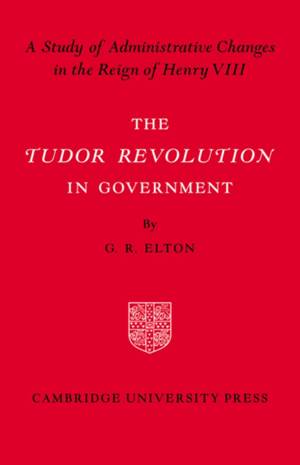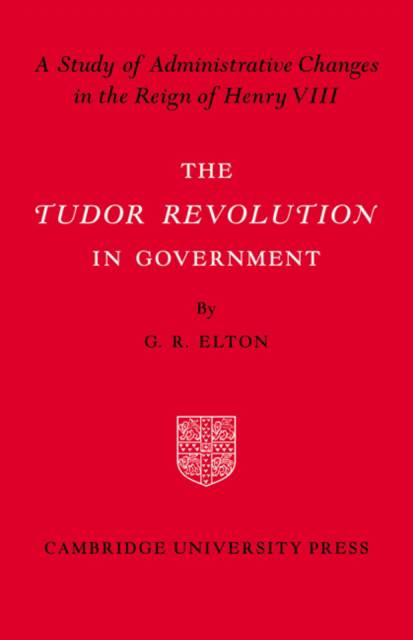
- Afhalen na 1 uur in een winkel met voorraad
- Gratis thuislevering in België vanaf € 30
- Ruim aanbod met 7 miljoen producten
- Afhalen na 1 uur in een winkel met voorraad
- Gratis thuislevering in België vanaf € 30
- Ruim aanbod met 7 miljoen producten
Zoeken
€ 57,95
+ 115 punten
Omschrijving
This book is a study of change in the methods and principles of English government in the sixteenth century, from the 'household' methods of the Middle Ages to the bureaucratic organization of a national monarchy. The most important decade, 1530-40, is given most concentrated attention, but the earlier and later phases are also touched upon. The study deals with the organs of central government: the financial machinery and the new courts; seals and secretariats and the rise of the secretary of state; the council and the making of the privy council; the royal household and its retirement from national government. When this neglected aspect of its history is studied, the sixteenth century is once again seen as an age of revolution. It becomes clear that it was Thomas Cromwell who was the principal figure in the government of the 1530's, and both his mind and his real intentions are shown in a fresh light.
Specificaties
Betrokkenen
- Auteur(s):
- Uitgeverij:
Inhoud
- Aantal bladzijden:
- 484
- Taal:
- Engels
Eigenschappen
- Productcode (EAN):
- 9780521092357
- Verschijningsdatum:
- 1/01/1967
- Uitvoering:
- Paperback
- Formaat:
- Trade paperback (VS)
- Afmetingen:
- 140 mm x 216 mm
- Gewicht:
- 607 g

Alleen bij Standaard Boekhandel
+ 115 punten op je klantenkaart van Standaard Boekhandel
Beoordelingen
We publiceren alleen reviews die voldoen aan de voorwaarden voor reviews. Bekijk onze voorwaarden voor reviews.











